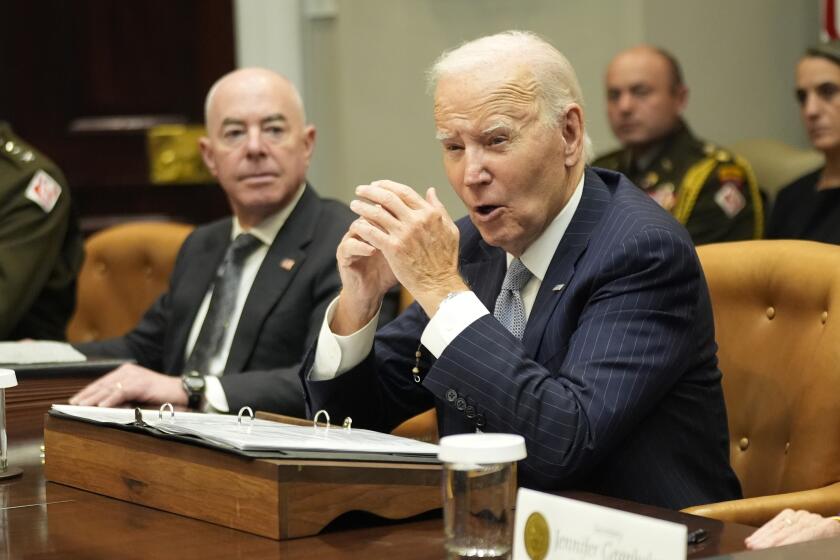Illegal Child Labor Rises in New England : 14-Year-Olds Buying Cars as Child Labor Soars in New England’s Worker Shortage
Keeping up with the neighbors has taken on a new meaning in New England, where 14-year-olds are buying cars two years before they can legally drive.
Children are brushing aside their homework and punching time cards to buy $50 designer jeans, and many of them are working illegally to do it--thanks to the region’s thriving economy.
“We’ve seen kids 14 and 15 years old making automobile payments. They can’t even legally drive yet, and they’re owning new cars,” said Douglas Dewar of the Massachusetts Office for Labor and Industry.
As New England has climbed out of the dark 1970s, when its unemployment peaked at 10.4%, and entered the 1980s, with unemployment plummeting to 3.1% last year and creating a labor shortage, children have entered the booming job market.
Of the 19,077 child labor citations recorded nationwide in 1987, a staggering one-third of them, or 6,712, were issued in New England, with most of them in eastern Massachusetts and southern New Hampshire, the U.S. Labor Department reported.
The number of citations in New England last year dropped to 3,778, which officials say reflects a slightly slowing economy. But of the 20,454 citations across the nation in 1988, New England still led the nation.
Most of the new jobs for New England youngsters are low-skilled positions in such businesses as fast food restaurants, supermarkets and retail stores. From Bangor, Me., to Bridgeport, Conn., employers are increasingly depending on teen-agers--including underage teen-agers--to fill them.
“Employers are needing to turn to workers they might not have recruited in the past--even 14- and 15-year-olds--and, because of that, there’s a rise in violations under federal laws,” said Ted Fitzgerald of the Labor Department’s Boston office.
In 1975, at the peak of the recession, there were a mere 386 child-labor citations in New England.
Although the national minimum wage is $3.35 an hour, many of these workplaces pay from $5 to $7 an hour in the competition to entice young employees, who are eager to work in retail establishments even before they turn 14.
“I started working at 13 at a little variety store,” said Kevin Cullen of Boston’s Brighton neighborhood.
Although working at 13 is illegal, Cullen, now 15, said he was able to work as much as he wanted.
“I want to buy a car,” said Cullen, who now bags groceries and collects shopping carts at a supermarket for $5.50 an hour.
The federal Fair Labor Standard Act allows children ages 14 and 15 to work--but only if they receive parental approval and state and federal work permits.
They may not work more than three hours on a school day and may not start before 7 a.m. or continue after 7 p.m.
The discovery that 14- and 15-year-old youngsters were operating power-driven meat-slicing machines at Roy Rogers restaurants led the Labor Department to bring suit last month against Eastern Hospitality Inc., based in Stamford, Conn., which operates 23 of the fast food franchises in Connecticut.
Eastern Hospitality would not comment on the lawsuit, except to say that the company’s policy is not to hire people under 16.
Some contend that the availability of work is helping children to learn responsibility. But many educators, parents and child advocacy groups are worried that the easy money is threatening the youths’ education and contributing to unhealthy consumerism.
“They are working too much, too many hours--to buy a car, to buy consumer goods--and they’re spending less time on homework,” said Mark Piechota, principal of the 1,100-student public high school in the Boston suburb of Reading.
More to Read
Sign up for Essential California
The most important California stories and recommendations in your inbox every morning.
You may occasionally receive promotional content from the Los Angeles Times.










